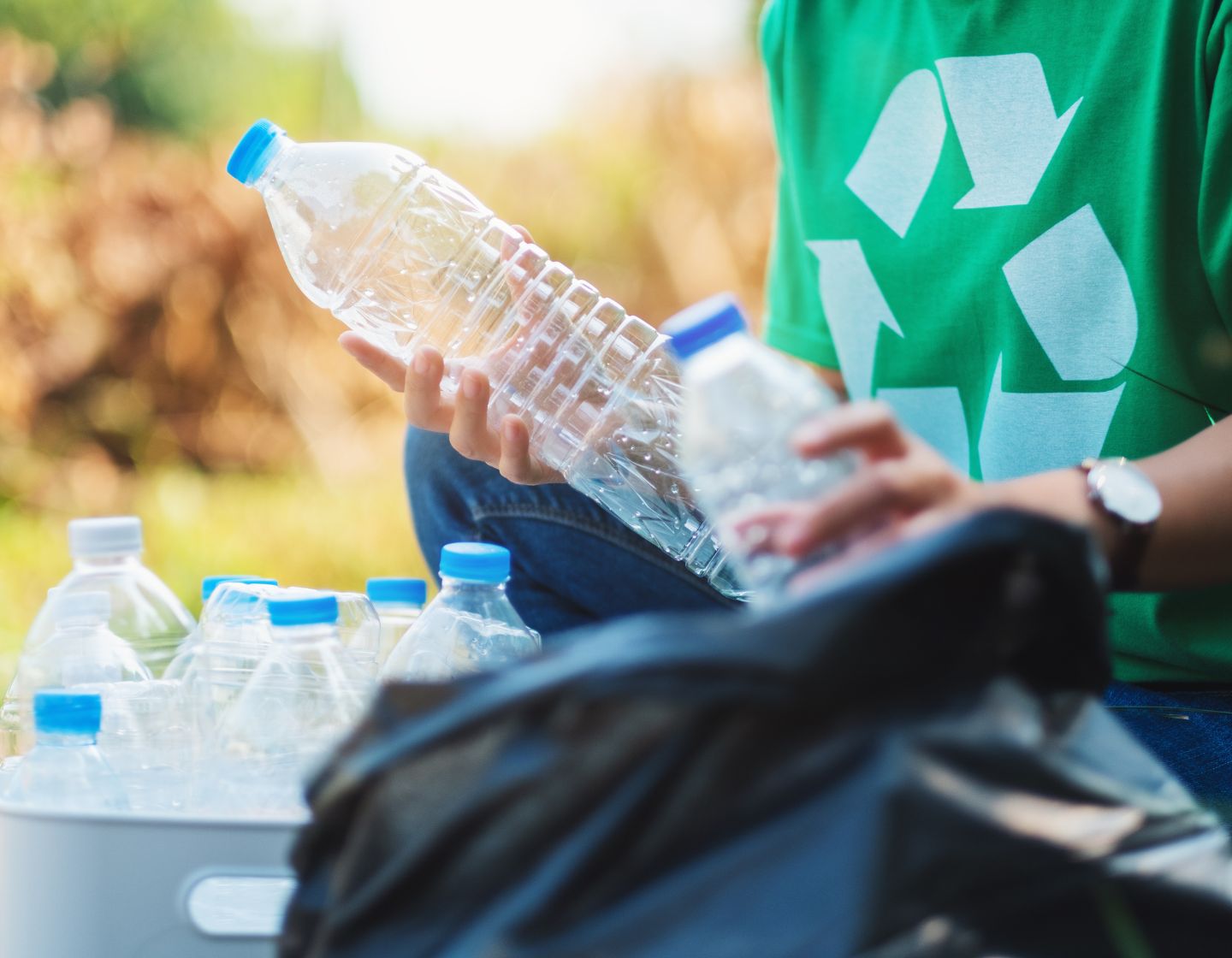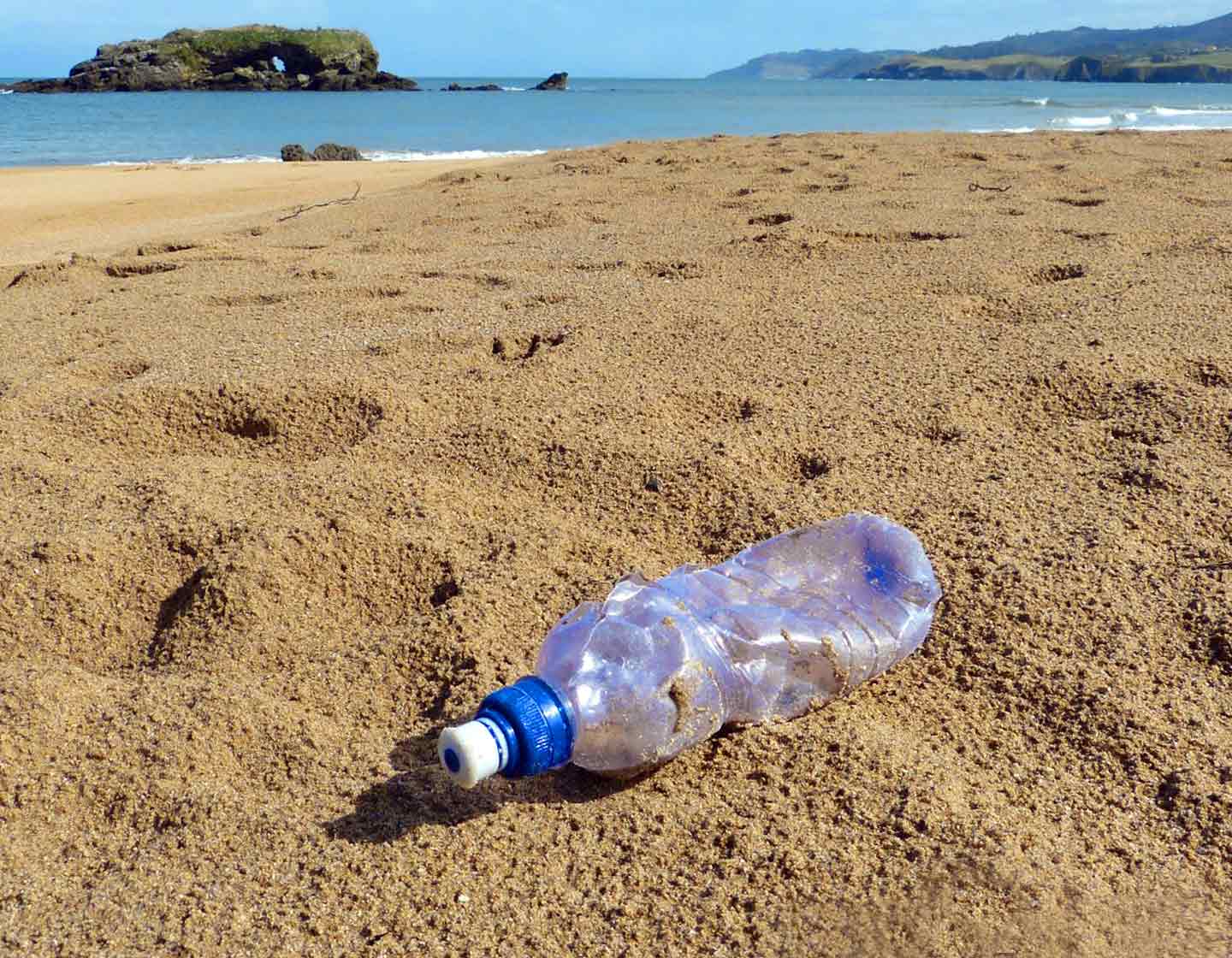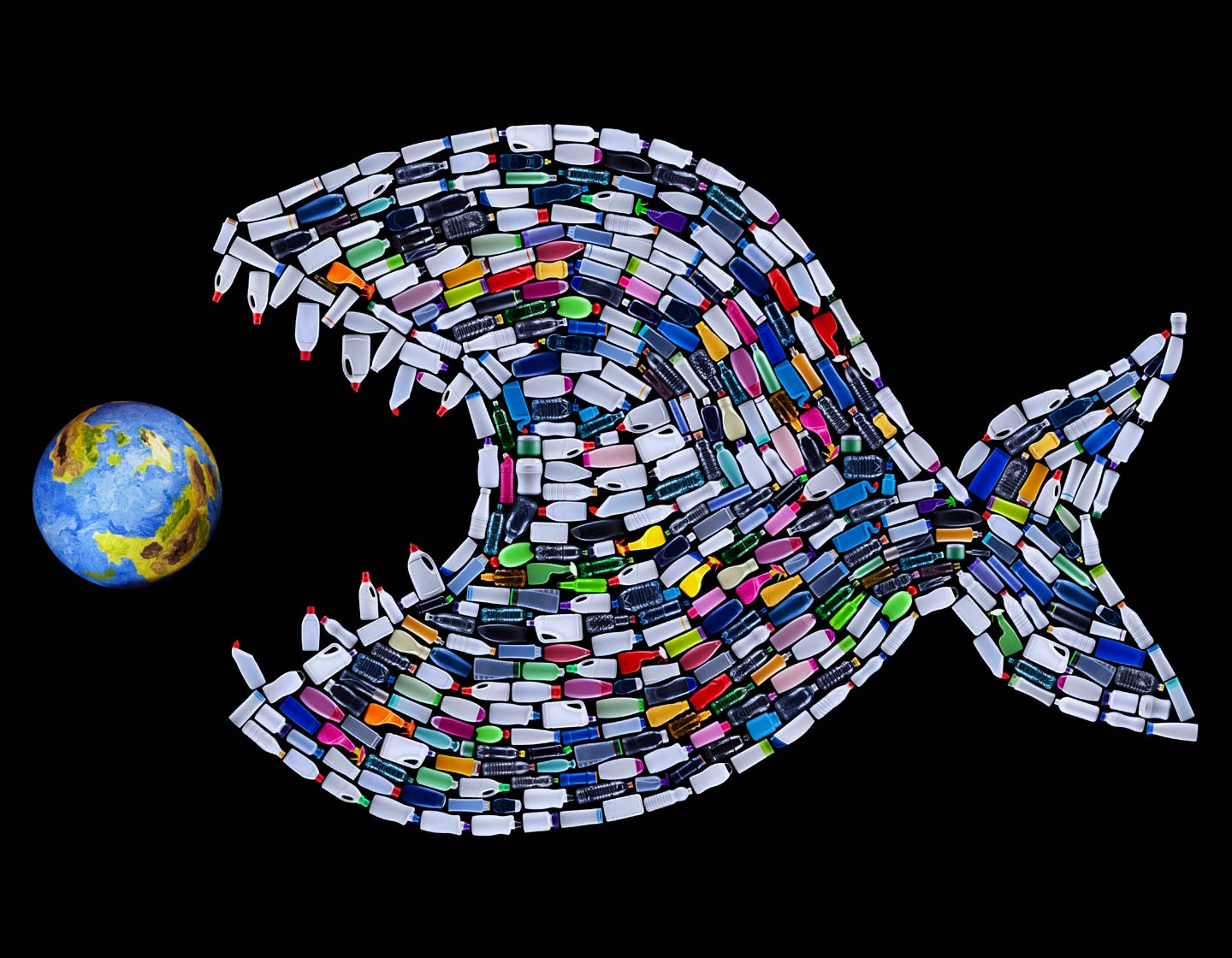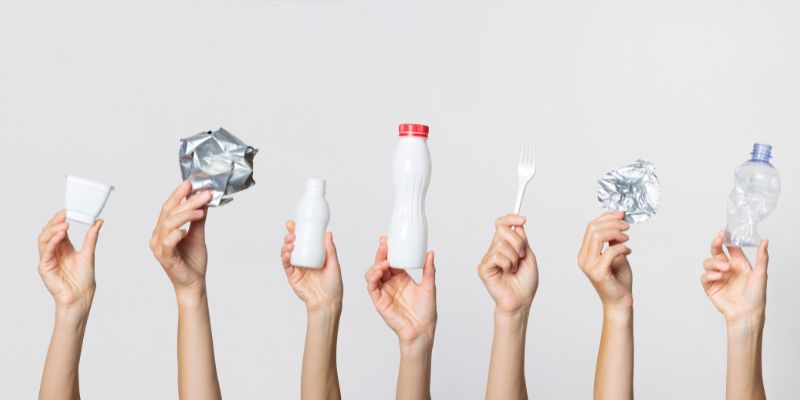Easy ways to beat plastic pollution
Plastic is a wonderful technology that has transformed the way we live but this has come at increasing cost to the health of the planet.
Around 8 million pieces of plastic pollution end up in the seas every day and it is estimated that there may be around 5.25 trillion macro and microplastic pieces floating in the open ocean, weighing up to 269,000 tonnes.
The Global Plastics Policy Centre, launched at the COP26 climate conference in Glasgow in November 2021, advises that 11 million tonnes of plastic ends up in our oceans every year – equivalent to one garbage truckload of plastic waste every minute.
The centre forecasts that this will nearly triple to around 29 million tonnes by 2040, unless coordinated action from governments, businesses and consumers is taken.
A discarded plastic bottle can last for 450 years in the oceans, and it will break up into ever smaller bits that never degrade completely. In fact, every single piece of plastic ever made is still around.
Roughly 5,000 bits of marine plastic pollution have been found with over 150 plastic bottles in every mile littering UK beaches. It’s more than just an eyesore – 100,000 marine mammals and turtles and 1 million sea birds die from plastic pollution every year. Recent studies found plastic pollution in 100% of marine turtles, 59% of whales, 36% of seals and 40% of seabird species examined.

Single-use plastics
So the push-back against plastic pollution that flows freely from every UK home is a big part of the struggle to rebalance the environment – and the government has taken some big steps to help us reduce single-use plastics waste.
Of the 5 million tonnes of plastic estimated to be used each year in the UK, three-quarters becomes waste. Two million tonnes of this is plastic packaging, including almost eight billion single-use plastic bottles.
The government has banned plastic straws and stirrers and plastic-stemmed cotton buds, citing the fact that an estimated 4.7 billion plastic straws, 316 million plastic stirrers, and 1.8 billion plastic-stemmed cotton buds are used in England every year, many of which find their way into the seas.
Extensions to plastic control include single-serving sauce sachets, individual milk pots, plastic plates and cutlery and wet wipes but progress on regulation has stalled as government struggles with economic and political challenges.
It remains committed to the 25 Year Environment Plan with the target of eliminating all avoidable plastic waste, to further protect marine wildlife.
The government has also introduced a new world-leading tax on plastic packaging that does not meet a minimum threshold of at least 30% recycled content to encourage greater use of recycled plastic. The rate is £200 per metric tonne of plastic packaging.
Research indicates that only 9% of all plastic ever produced is estimated to have been recycled, partly due to poor collection and processing infrastructure in much of the world. And a recent study published by the Ellen MacArthur Foundation revealed that refillable packaging accounted for just 2% of the products sold by the world’s biggest consumer goods firms.

Urgent action globally
As the Global Plastics Policy Centre advises, urgent and radical action is needed to find sustainable solutions that end plastic pollution around the world. It has launched a free online knowledge-sharing platform as part of the University of Portsmouth’s Revolution Plastics research initiative.
The website provides independent, evidence-based advice on plastic policy, designed to give governments and businesses the evidence needed to make informed decisions around plastic policies, as well as giving people the knowledge to understand the actions their governments are taking.
The university also hosted PlasticsFuture 2023, a top-level conference focused on new solutions to end plastic pollution, sharing global research and innovation across disciplines and communities, and forging future collaborations.
In the context of climate change, the control of plastics production and use is a crucial element. The influential Overseas Development Institute warns in its report – Phasing Out Plastic – that global climate goals are unachievable without drastic action by industry and consumers to curb plastic use.
The think tank says that fossil fuel emissions from plastic production will rise three-fold by 2050 on current trends. But meeting climate goals means that we have to reduce plastic consumption by 50% over the next 30 years and ensure that 75% of the remaining plastic is recycled.

Industry and consumer action
The detailed ODI research finds that these figures can only be achieved through large-scale changes in industry and in consumer action together with to a massive cut in the use of oil and gas to produce plastics.
This requires industries to use plastic produced without fossil fuels and the ODI researchers stress increased adoption of alternative forms could result in a drastic cut in global emissions from plastics from 1,984 million tonnes of carbon dioxide equivalent (Mt CO2e) in 2015 to 790 Mt CO2e in 2050.
The report outlines the system-wide solutions that will be needed to realise these changes, with calls for:
- Governments to introduce regulations to rapidly phase out single-use plastics, incentivise the use of alternative materials (for example, through carbon taxes) and invest in recycling capacity
- Businesses to adopt principles of sustainability and circular economy in product design
- Consumers to reuse and recycle plastics, but to also be aware of the climate effects of the plastics that they use.
The main report is supported by four further studies focused on the automotive, construction, packaging, and the electrical & electronic equipment sectors.
The ODI forecasts that plastic consumption could be reduced by more than 95% in the construction sector, 78% in the packaging sector, 57% in the electronics sector and 17% in the automotive sector. Currently, these industries collectively account for around 60% of total plastics consumption.
But it warns that if current trends continue, emissions from plastics are set to rise three-fold in 30 years, dashing hopes of achieving net zero by 2050.
Simple actions, big effect
The UK uses more than 35 million plastic bottles every day, so buying a reusable water bottle can drastically reduce plastic use. The UK also throws away 2.5 billion coffee cups every year, with only one in 400 being recycled so getting a reusable one is a simple step to less plastic waste
With a little planning the trip to the supermarket can be less plastic-intensive, taking bags for loose fruit, vegetables and dry goods and making the most of the bulk aisle. Using local refill shops is another clear winner.
Reuse is one of the easiest and most efficient ways to cut plastic waste. Ice-cream tubs or takeaway plastic containers can be used to organise drawers and cupboards, store leftovers, save vegetables in the freezer, and for bulk-isle shopping. And plastic bags and bottles can be reused many times.

